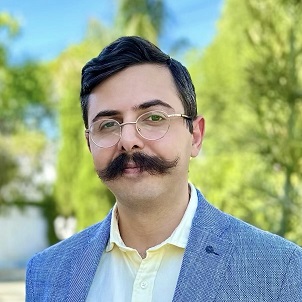By Varouj Vartanian
Special to the Mirror-Spectator
On September 27, 2020, Azerbaijan invaded the disputed region of Nagorno-Karabakh (Artsakh), which is an enclave inside Azerbaijan that is inhabited by 120,000 Armenians. In 1991 after the collapse of the Soviet Union, the Nagorno Karabakh Autonomous Oblast held a referendum, with 99.98 percent of voters approving the decision to become independent, after Azerbaijan had started pogroms and used genocidal rhetoric against the Armenian minority population. The Armenian population of Nagorno-Karabakh was able to defend itself against Azerbaijani aggression in the 1st Nagorno-Karabakh War (1988-1994), and there was a frozen conflict until 2020.
The invasion initiated by Azerbaijan in September 2020 lasted until November 9, 2020, and the war was halted due to a ceasefire agreement. Over the past three years, Azerbaijan has been dismantling Armenian churches and bulldozing any Christian religious sites or monuments that the Armenians have built, some of which are hundreds of years old. It was known that this would happen because Azerbaijan is said to have committed “the worst cultural genocide in the 21st century,” when the Guardian investigated that Azerbaijan systematically erased any trace of Armenian or Christian history in Nakhichevan to use as evidence that Armenians never lived in that region. Currently, the remaining territory of Nagorno-Karabakh is connected to Armenia by a single road known as the Lachin Corridor.
On December 12, 2022, Azerbaijani citizens claiming to be “eco-activists” started a blockade to prevent the movement of people from Nagorno-Karabakh to Armenia via the Lachin Corridor. As this was ongoing, the Azerbaijani government cut off gas to the 120,000 Armenian civilians inside Nagorno-Karabakh in the middle of winter in an attempt to cause a humanitarian crisis. After this event, the UN Chief urged the reopening of the Lachin Corridor, while Greece, France, the Netherlands, Canada, and the United States made statements urging Azerbaijan to unblock the corridor.
While Nagorno-Karabakh is isolated from the rest of the world, the Armenians of Nagorno-Karabakh are facing starvation. Hospitals and medical clinics have urged that they are running out of medicine and medical supplies, and that this blockade has caused an increase in miscarriages and deaths. Many Armenians who need to use the Lachin Corridor to reach hospitals in Armenia are being prevented from being transported due to the closure of the Lachin Corridor. The International Committee of the Red Cross arrived and attempted to help, but also stated that Azerbaijan has not given permission to bring any form of aid or supplies into Nagorno-Karabakh.










